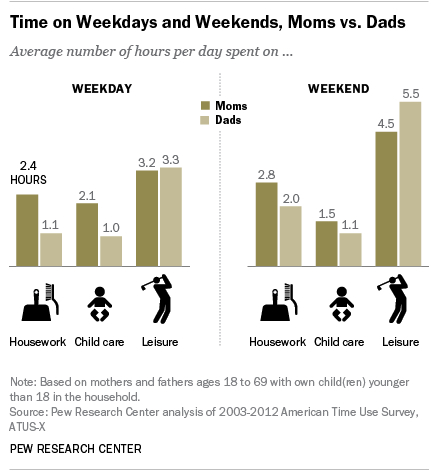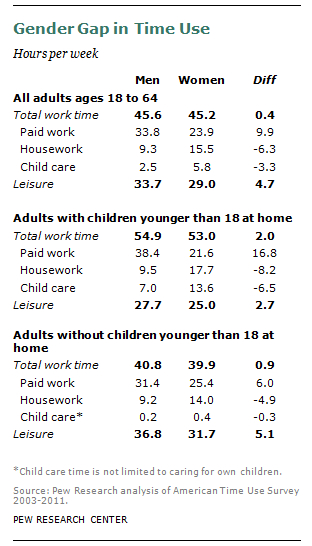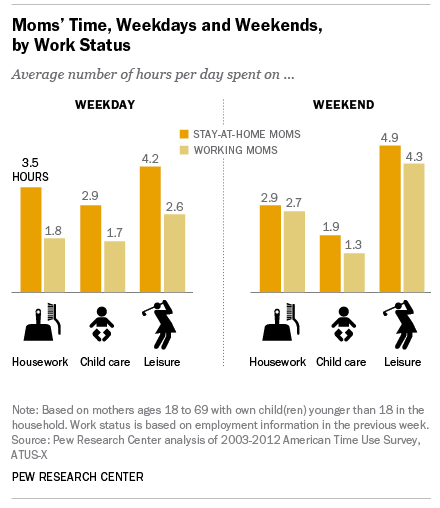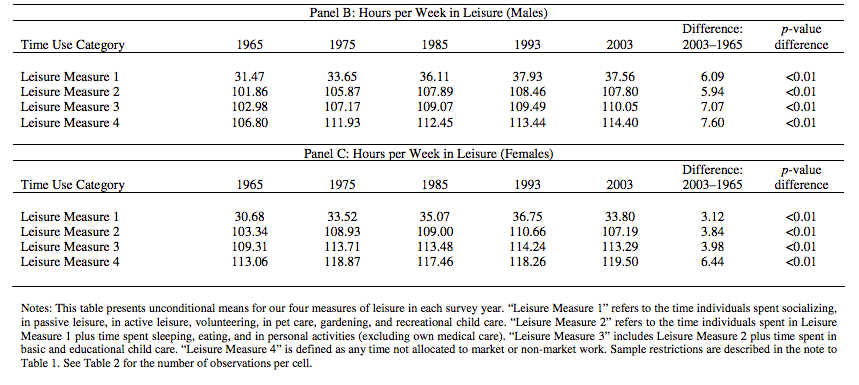Our Monday gender issue focus
Married or single, weekends and weekdays, men have more leisure time than women.
Imagine a typical weekend. Yes, mom might spend a bit less time watching the kids and dad does do more housework. However, when it comes to leisure, during Saturday and Sunday, the dads relax an hour more than the moms. Specifically, dad watches the kids close to 75% as much as mom and does 71% as much housework as his wife. So you can see why she has less leisure time.
During the workweek, mom also has less leisure time than dad. Because dads spend close to one half the time as moms on children and on housework, they have more leisure time and use it mostly to watch TV.
Here is how leisure time is allocated:

You can see below how parents compare.

And here is how all of us compare:

In addition, there is a difference between moms who work outside the home and those who do not:

And finally, here is the historical perspective. (We should note that college educated, more affluent individuals have less leisure time than lower wage earners with no more than a high school diploma.)

Our bottom line: Although we are not working, leisure is very much a part of our market system through our allocation of time, of money and its gender and income implications.
Does the research confirm your own leisure experience? Please let us know in a comment.
How Big is the Leisure Gap Between Men and Women?

Elaine Schwartz
Elaine Schwartz has spent her career sharing the interesting side of economics. At the Kent Place School in Summit New Jersey, she was honored with an Endowed Chair in Economics. Just published, her newest book, Degree in a Book: Economics (Arcturus 2023), gives readers a lighthearted look at what definitely is not “the dismal science.” She has also written and updated Econ 101 ½ (Avon Books/Harper Collins 1995) and Economics: Our American Economy (Addison Wesley 1994). In addition, Elaine has articles in the Encyclopedia of New Jersey (Rutgers University Press) and was a featured teacher in the Annenberg/CPB video project “The Economics Classroom.” Beyond the classroom, she has presented Econ 101 ½ talks and led workshops for the Foundation for Teaching Economics, the National Council on Economic Education and for the Concord Coalition. Online for more than a decade. econlife has had one million+ visits.





